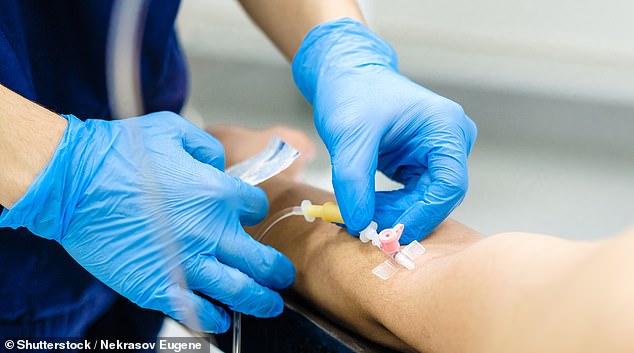- More than 52,000 men are diagnosed with prostate cancer each year in the UK.
<!–
<!–
<!– <!–
<!–
<!–
<!–
GPs have been told to stop carrying out intimate exams when looking for prostate cancer, fearing this will deter men from coming forward.
New guidelines published in the British Journal of General Practice say the test is unreliable and likely to do more harm than good.
It allows doctors to palpate only the posterior wall of the prostate, meaning any abnormalities in the middle or front part of the gland would be missed.
The bulletin, produced by the UK Prostate Cancer Clinical Advisory Group, states: ‘There is no shortage of popular culture references to prostate screening, with much laughter generated by the finger-in-the-bum punchline.

New guidelines published in the British Journal of General Practice say the test is unreliable and likely to do more harm than good (File image)


More than 52,000 men are diagnosed with prostate cancer each year in the UK, making it the most common cancer in men (File Image)
“Interestingly, while cervical, breast, or bowel exams share barriers to acceptance around the intimacy of the exam… they have never become comedy tropes, reflecting the uniquely emasculating perception of the rectal exam.”
It comes after a survey of more than 2,000 men by Prostate Cancer UK found that 60 per cent were worried about undergoing a digital rectal examination (DRE).
Of these, 37 per cent would not talk to a GP about their prostate problems due to screening.
Existing guidance from healthcare watchdog NICE says that men who have elevated levels of the protein PSA in their blood, which can be a sign of cancer, should be sent for an MRI, meaning the intimate examination has little value.
The group’s paper tells GPs: “Doing a DRE does not contribute to your decision-making and an MRI will indicate much more accurately whether there are likely benign causes for the elevated PSA and the man can be discharged.” without a biopsy.”


It comes after a survey of more than 2,000 men by Prostate Cancer UK found 60 per cent were worried about undergoing a digital rectal examination (DRE) (File Image).
More than 52,000 men are diagnosed with prostate cancer each year in the UK, making it the most common cancer in men. Around 12,000 men die each year from this disease, one every 45 minutes.
Chiara De Biase, from Prostate Cancer UK, said: “For many men, when they think about a prostate cancer test, the first thing they think of is ‘sticking their finger up their butt’.
“But the evidence is that it’s not really a good test for prostate cancer…the best first step is a quick and easy blood test.”
The Mail has led the way in prostate health advocacy since 1999, encouraging men to stop “dying of shame.”
